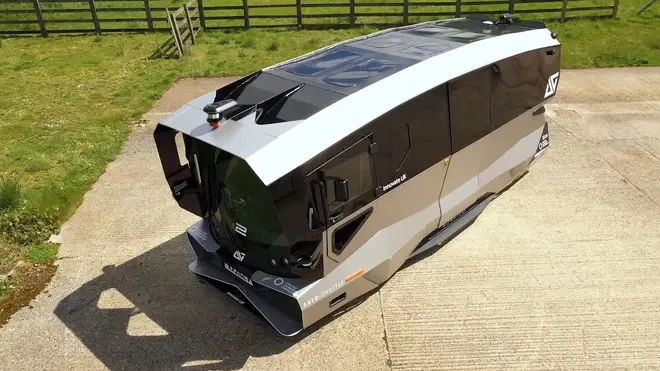
Matthew Wright 7am - 10am
27 May 2021, 21:24

The trial aims to assess whether the driverless technology could one day join the public transport network.
The UK’s first driverless shuttles have taken to the road in Cambridge, carrying their first passengers in a trial alongside normal traffic.
The autonomous vehicle took a 20-minute journey around the University of Cambridge’s West Cambridge campus in a test project which aims to assess whether the technology could one day join the UK’s public transport network.
The 10-seater shuttles, created by Coventry-based engineering firm Aurrigo, are designed to run at a maximum of 20mph and are fully electric, with a range of 100 miles.
Safety operators were on board during the tests and able to regain manual control of the vehicles at any time if required.
Greater Cambridge Partnership (GCP), Smart Cambridge and Aurrigo worked on the project, which is supported by the Government’s Innovate UK and the Centre for Connected and Autonomous Vehicles (CCAV).
Transport Minister Rachel Maclean was one of the passengers on board the shuttle and said the project is “hugely exciting”.
“Self-driving vehicles present a number of opportunities for the UK from providing safer, greener and more reliable transport services to creating tens of thousands of well-paid and skilled jobs across the nation,” she said.
The project was first launched in 2018 and further passenger trials are planned for June.
David Keene, chief executive officer of Aurrigo, said: “This is another major milestone in the journey towards making autonomous vehicles a reality on our roads.

“Our technology will help provide new transport solutions for city centres, shopping and care facilities, airports and heritage sites. The trial in Cambridge is the next step in proving it.”
Mayor of Greater Cambridgeshire Dr Nik Johnson said: “It is very exciting to see these vehicles working on real roads here as another first in Cambridge.
“These shuttles can be used on demand all day and night, every day of the year – which is unaffordable with our existing public transport.”